Since the onset of Russian aggression, being two times displaced Donetsk State University of Internal Affairs (DonSUIA) has gained extensive experience in supporting staff, students, veterans, and their families in many ways. This work highlighted both the urgent need for psychological rehabilitation and the university’s ability to respond through innovative, community-based solutions. During the full-scale invasion, DonSUIA launched rehabilitation initiatives that combined therapy, adaptive sports, and family-focused support. These activities evolved into the Veterans’ Hub – a safe space where defenders, relatives, and students access psychological care while building a culture of resilience. This model has fostered a unique community where healing and learning reinforce one another. Inspired by this work, DonSUIA created a Master’s programme in Clinical and Rehabilitation Psychology, embedding lived experience into training. Veterans and practitioners contribute as co-trainers, ensuring graduates combine academic knowledge with authentic understanding of trauma and recovery. By examining experiences of psychological trauma in post-Soviet contexts, international partners have recognised the value of DonSUIA’s long-term engagement, providing insights essential for fostering resilience and democratic values within the European neighbourhood. Together with Lithuanian colleagues, DonSUIA has designed the PsychoSafe Community project, to be launched in 2026. It integrates Ukrainian practice with European expertise into a scalable model of trauma-informed education and community support – contributing to a resilient and healing European neighbourhood, where recovery and democratic values transcend borders.

CATEGORY WINNER
Ukrainian Social Innovation and Engagement Award Award
PsychoSafe Community: Rehabilitation and Education for the Military, Police and Emergency Service Personnel
CATEGORY WINNER Ukrainian Social Innovation and Engagement Award Award
Peoples' Choice Category Winner
Donetsk State University of Internal Affairs - Ukraine
"Transforming Trauma, Safer Community"
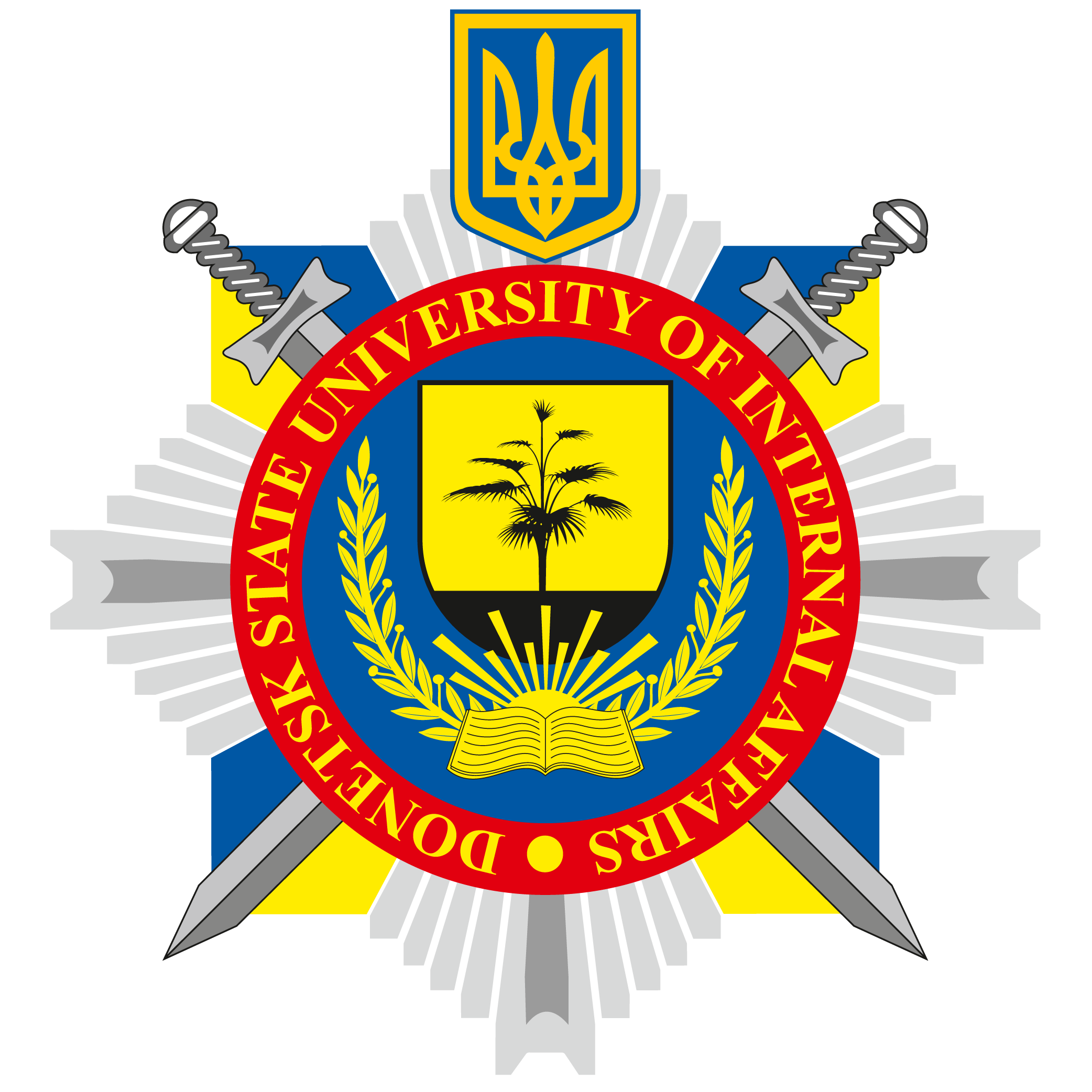
Engage on social media
(Donetsk State University of Internal Affairs)
(Official You-tube Channel of the Donetsk State University of Internal Affairs )
(Official Instagram Channel of the Donetsk State University of Internal Affairs )
Have a say and vote for this entry to win the People's Choice Award!
500 points per vote
Provide your email address and click on "vote". You will then receive an email that enables you to verify your vote by clicking on a link.
1500 points for each share/re-post; 500 points for each like
This entry has not provided any social media links for community voting.
Summary
Key People
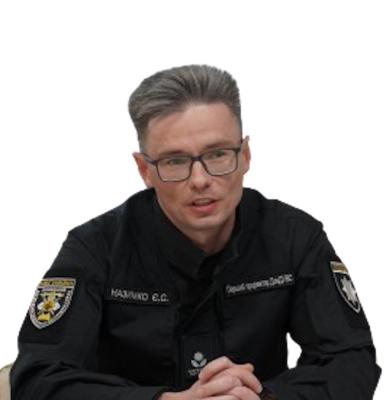
Yehor Nazymko
Vice-rector
DonSUIA
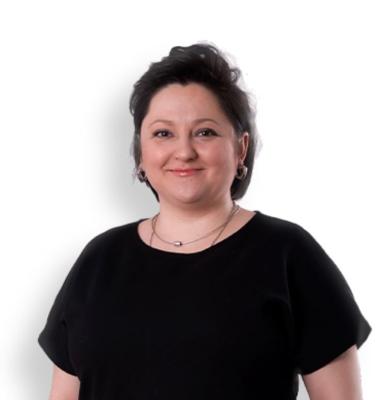
Ievgeniia Dragomirova
Senior Officer
Department of International Cooperation,
DonSUIA
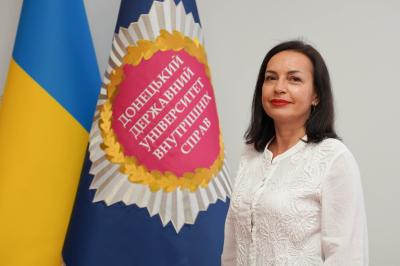
Gelbak Anzhela
Head of the Department of Social and Humanitarian Disciplines
Faculty of Training Specialists for Pre-Trial Investigation Units,
DonSUIA
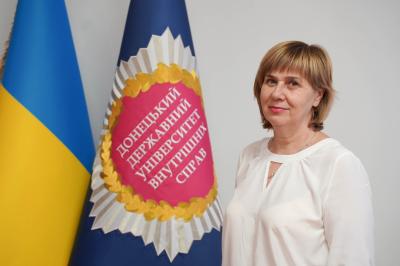
Mukhina Halyna
Associate Professor at the Department of Social and Humanitarian Disciplines
Faculty of Training Specialists for Pre-Trial Investigation Units,
DonSUIA
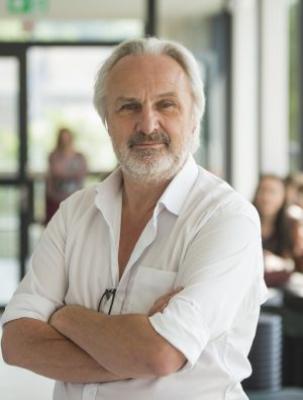
Johannes Baks (publishing under the pseudonym Robert van Voren)
Professor of Soviet and Post-Soviet Studies
Executive Director of the Andrei Sakharov Research Center for Democratic Development,
Vytautas Magnus University
Images
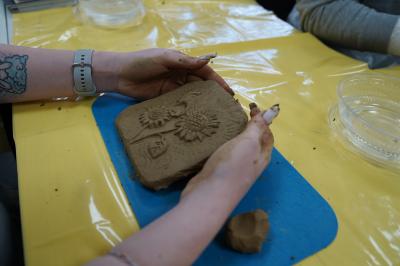
In the dreams of invincibility
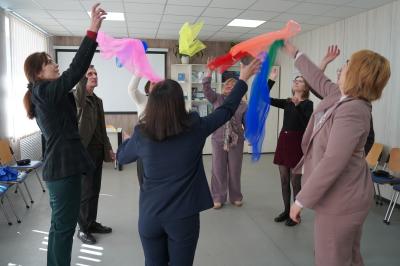
Psychological support group Eurythmy as a tool for psychological recovery after loss
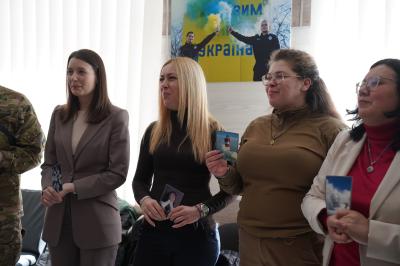
Coaching set The resource of one is the resource of many
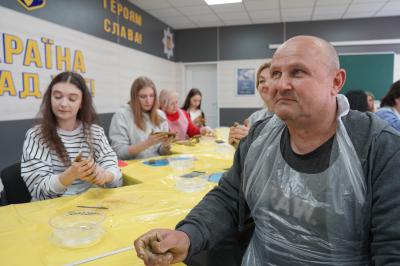
Psychological workshop Clay therapy in overcoming war trauma
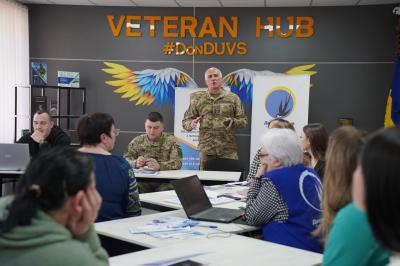
Veteran Hub
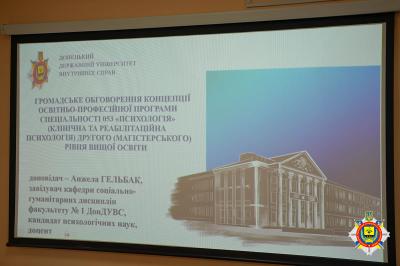
Discussion of the Curriculum with the Community and Stakeholders
IMPACT STORY
Impacting lifes
PsychoSafe Community strengthens the psychological resilience and social integration of military, police, and emergency service personnel returning from combat zones. The programme helps restore emotional balance, reduce workplace conflicts, and increase professional effectiveness, which is also economically beneficial by lowering costs of treating stress-related disorders.
A vivid example is a police officer who, after participating in crisis operations, struggled with insomnia and could no longer communicate with colleagues. Through PsychoSafe, he gained practical stress-management tools and found peer support. After individual and group sessions, he regained emotional balance and went further – launching a peer-support group in his own unit, now helping colleagues cope with stress.
The programme has reached over 250 participants from diverse regions and security sectors. It engages a wide network of stakeholders, including local authorities, veteran associations, NGOs, and higher education institutions of the Ministry of Internal Affairs. Families of participants are also involved, ensuring that rehabilitation extends beyond the workplace into community life.
The initiative has become a platform for sustainable resilience and mutual learning. Its integration into DonSUIA’s new Master’s in Clinical and Rehabilitation Psychology and the upcoming Lithuanian–Ukrainian PsychoSafe Community project (2026) ensures scalability and long-term impact. In this way, PsychoSafe is not only transforming individual lives but also fostering safer, stronger, and more resourceful communities.
LEARNINGS
Lessons learned
The originality of the initiative lies in combining psychological rehabilitation with higher education in an unprecedented way within Ukraine’s Ministry of Internal Affairs system. The Veterans’ Hub at DonSUIA was the first of its kind in the country, serving simultaneously as a space of care for veterans and their families and as a living laboratory for developing innovative educational practices. Unlike traditional support centres, the Hub integrates veterans, relatives, and students into a shared community of healing, where psychological services are delivered alongside opportunities for study, training, and peer support.
A novel feature is the inclusion of practising psychologists who have worked directly with military, police, and emergency responders as co-authors and trainers in the Master’s programme Clinical and Rehabilitation Psychology. This ensures that teaching is not only theoretical but also rooted in lived professional and emotional experience. The programme’s interdisciplinary approach – bridging psychology, education, and sociology – offers a unique model of trauma-informed professional preparation.
This shared knowledge is not only relevant for societies living through war, but also for international partners interested in addressing the psychological consequences of post-colonial aggression and in understanding how communities can collectively recover from systemic violence. By linking these contexts, the initiative offers a scalable and transferable model of trauma-informed education that resonates far beyond Ukraine, contributing to global debates on resilience, healing, and democratic renewal.
Key learnings: sustainable rehabilitation requires combining therapy with education; engaging families and peers reduces stigma; and hybrid delivery ensures continuity even during security risks.
Advice: build multi-level partnerships, include lived experience in curricula, and treat rehabilitation not as isolated care but as a community-wide resource for resilience.
FUTURE PLANS
What's coming?
The next phase of PsychoSafe Community is designed to ensure both sustainability and scalability, extending its impact well beyond the initial project cycle. A key element will be the creation of the PsychoSafe Alumni Club – a professional community of graduates who will disseminate self-help practices and peer-support models within their respective units in the military, police, and emergency services. This network will act as a multiplier, embedding resilience strategies directly into operational environments.
In parallel, the initiative will develop a system of short-term courses and long-term professional development programmes, tailored to the needs of frontline personnel. These will include practical modules on psychohygiene, stress management, and burnout prevention, integrated into departmental training for security and emergency units. Such continuous education will help institutionalise trauma-informed practices and reduce reliance on ad hoc interventions.
To broaden its reach, DonSUIA will expand international cooperation, co-developing joint training and educational programmes with Lithuanian and European partners. This cross-border exchange will ensure that the Ukrainian experience of psychological rehabilitation – rooted in the realities of ongoing war – is complemented by European expertise in addressing post-colonial trauma and collective recovery.
Looking forward, the project envisions DonSUIA as a national centre of excellence in trauma-informed education, bridging research, practice, and community engagement. By embedding resilience into education, professional training, and everyday organisational culture, PsychoSafe will contribute to building safer, stronger, and more compassionate communities – both in Ukraine and across the wider European neighbourhood.

